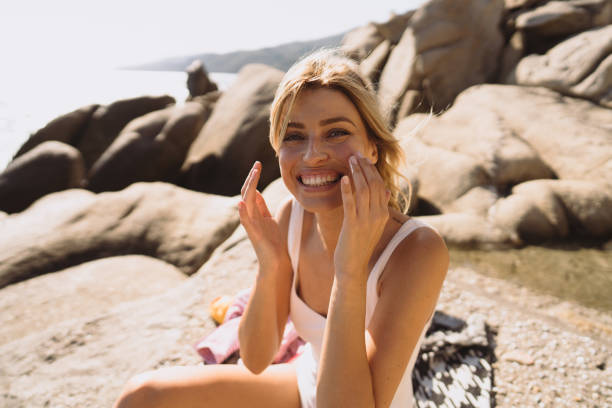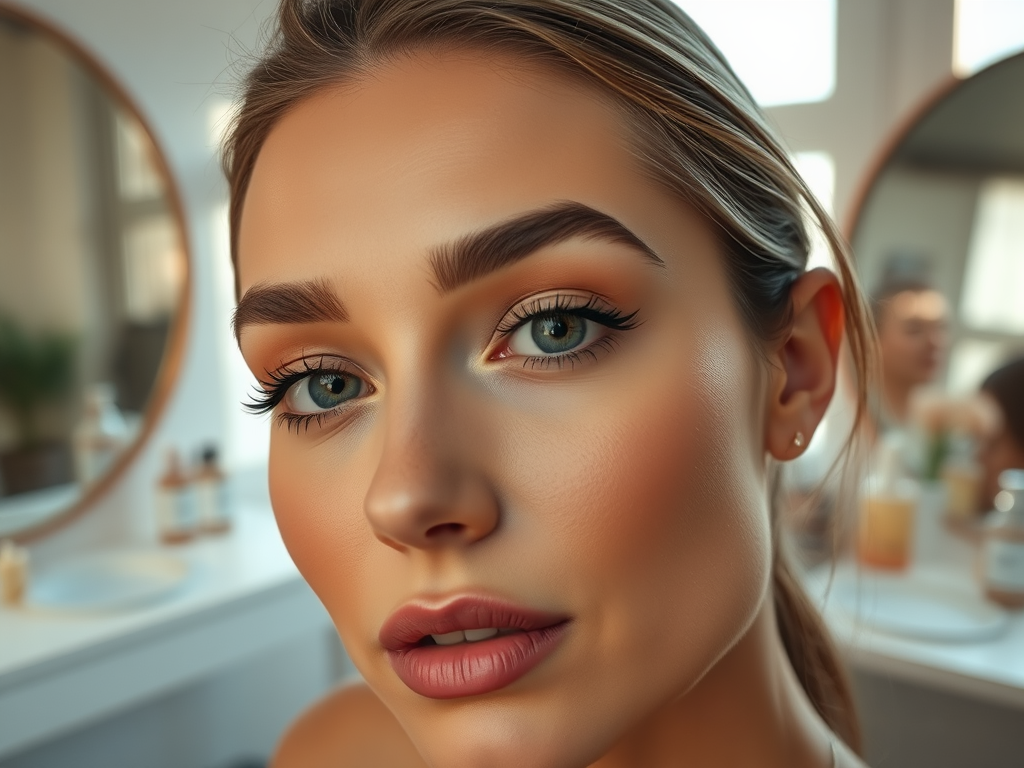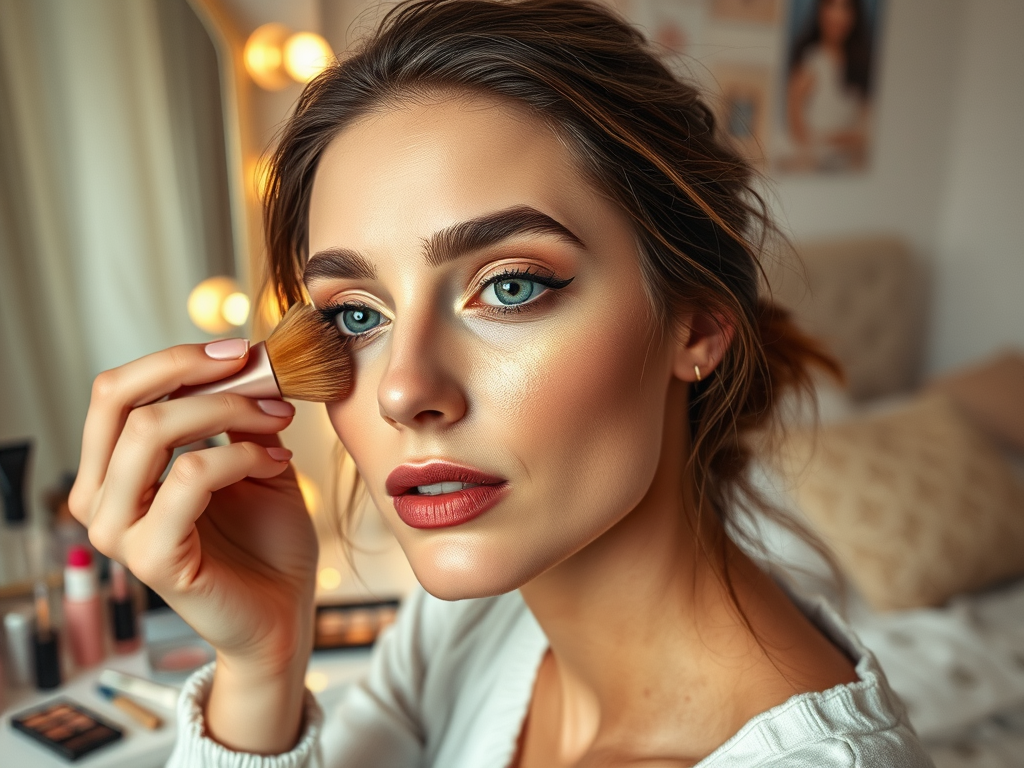At its core, sunscreen is an essential product designed to protect your skin from the harmful effects of ultraviolet (UV) rays. Consistent wearing of sunscreen helps reduce your risk of skin cancers, prevents premature aging, and maintains overall skin health. Understanding why sunscreen should be a non-negotiable part of your daily routine is crucial, no matter the season or weather. This article delves into the world of sunscreen, providing insight on how it works, why it’s essential for everyone, and how to choose and use it effectively.
The Science of Sun Protection
Sun exposure can be beneficial in moderation, offering a dosage of vitamin D; however, the risks often outweigh such benefits. UV radiation comes in different forms – UVA and UVB – both of which can be damaging to the skin. UVA rays are responsible for premature aging and wrinkling, while UVB rays cause sunburn. Both contribute to an increased risk of skin cancer. Sunscreens are formulated with chemicals that either absorb or reflect these harmful rays. A product’s Sun Protection Factor (SPF) rating indicates its effectiveness against UVB radiation, with higher SPFs providing greater protection. But it’s crucial to look for “broad-spectrum” on the label, ensuring defense against both UVA and UVB rays.
Long-Term Health Benefits
Regular sunscreen use boasts a plethora of long-term health benefits. It significantly diminishes the risk of developing various skin cancers, especially melanoma, which is known to be particularly aggressive. Protecting the skin’s DNA from UV radiation, sunscreen use helps maintain its integrity and health. Beyond cancer prevention, wearing sunscreen daily can also slow down the skin’s aging process. By defending the skin from sunspots, leathery texture, and wrinkles, you’re ensuring that it remains youthful and resilient. Furthermore, sunscreen can help prevent hyperpigmentation and the uneven skin tones associated with prolonged sun exposure. Each of these factors contributes to not only a healthier but also a more vibrant appearance.

Choosing the Right Sunscreen
With an abundance of sunscreen products on the market, selecting the right one can seem daunting. Here are some key factors to consider in your quest for the perfect sun shield:
- Broad-spectrum protection: Always opt for sunscreens that offer broad-spectrum coverage against UVA and UVB rays.
- SPF ratings: Choose a sunscreen with an SPF of 30 or higher for daily use and SPF 50 or higher for extended outdoor activities.
- Water resistance: If you’re engaging in activities that involve water or sweating, look for “water-resistant” on the label. Remember to reapply as instructed.
- Skin type considerations: People with sensitive skin should select mineral-based sunscreens with zinc oxide or titanium dioxide. Those with acne-prone skin might prefer oil-free, non-comedogenic options.
- Application preferences: Sunscreens come in creams, gels, sticks, and sprays. Consider your lifestyle and activities to decide which form is most convenient and likely to encourage regular use.
Application Tips and Misconceptions
Applying sunscreen correctly is just as important as selecting the right product. Use enough sunscreen to generously coat all skin that will be not covered by clothing. Most adults need about one ounce — enough to fill a shot glass — to fully cover their body. Remember to apply it to often-missed spots like the tops of the feet, the ears, and the back of the neck. Even on cloudy days or while driving, UV rays can penetrate windows and clouds, making sunscreen essential. It’s a common misconception that darker-skinned individuals don’t need sunscreen, but UV radiation affects all skin types. Therefore, everyone should include sunscreen in their daily regimen.
Environmental Considerations
In pursuit of protecting our skin, it’s also important to consider the environmental impact of sunscreen. Some chemical ingredients found in sunscreens, such as oxybenzone and octinoxate, have been linked to coral reef bleaching. As a result, many places have started banning these ingredients to protect marine ecosystems. If you’re environmentally conscious or planning to swim in oceans, lakes, or rivers, look for “reef-safe” sunscreens that are biodegradable and free from these harmful chemicals. Though “reef-safe” isn’t a regulated term, choosing sunscreens with physical blockers like zinc oxide and avoiding known harmful ingredients is a step in the right direction for eco-friendly sun protection.
Conclusion
In summary, the importance of wearing sunscreen cannot be overstated. From safeguarding against the immediate discomfort of sunburn to protecting against long-term health risks like skin cancer, sunscreen plays a pivotal role in maintaining skin health. It’s also an ally against premature aging and helps preserve it in its most radiant state. By choosing the right product and using it correctly, you can enjoy the sun’s benefits without compromising your skin’s well-being. And with a mindful approach toward environmentally friendly options, your daily sun protection routine can reflect care for both personal health and our planet.
Frequently Asked Questions
1. How often should I reapply sunscreen? You should reapply sunscreen every two hours, or more frequently if swimming or sweating. Always reapply after towel drying even if the product is water-resistant.
2. Can I use sunscreen on my face if I have sensitive skin? Yes, look for sunscreens specifically formulated for sensitive skin, often mineral-based with active ingredients like zinc oxide or titanium dioxide.
3. Is higher SPF always better? Not necessarily. While higher SPF provides longer protection, no sunscreen blocks 100% of UV rays. SPF 30 blocks about 97%, and SPF 50 blocks about 98%. Beyond SPF 50, the increase in protection is minimal.
4. Does sunscreen expire? Yes, sunscreens have an expiration date after which the active ingredients can lose effectiveness. Check the packaging and replace it as needed.
5. Do I need to wear sunscreen indoors or in a car? Yes, since UVA rays can penetrate window glass, it is advisable to wear sunscreen even while indoors near windows or while driving.






